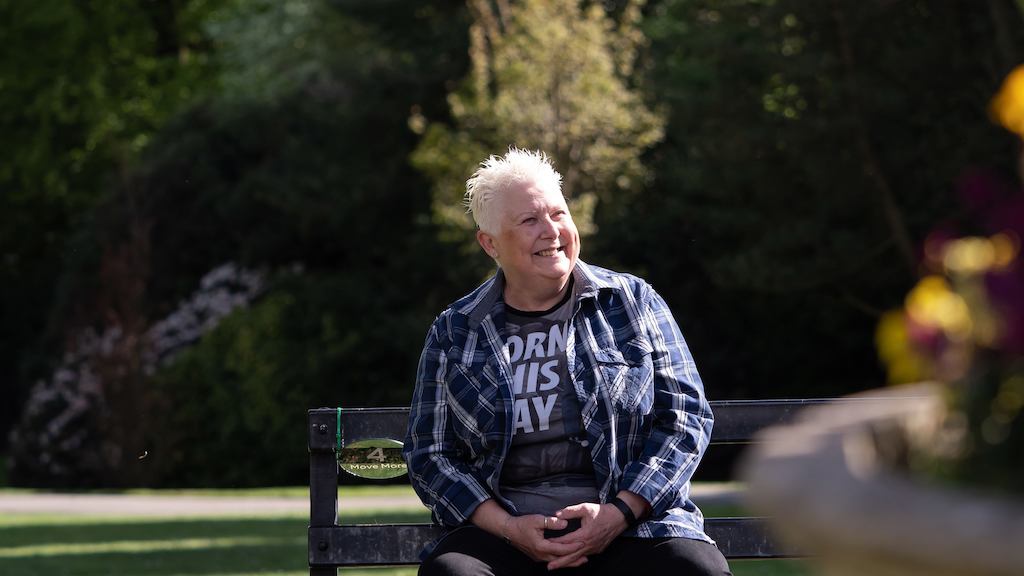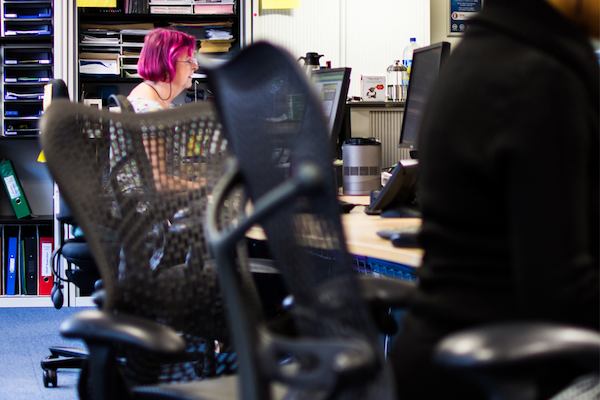But this adversity also means that many members of the older LGBT+ community are experienced activists – whether through campaigning for HIV treatment and prevention through ACT UP, or against the notorious Section 28 of the Local Government Act, which led to the founding of Stonewall. These seasoned campaigners have much to teach us about tactics to fight ageism, and challenging stereotypes of older age.
LGBT+ people continue to face particular challenges in later life: older LGBT+ people are currently more likely to live alone, and less likely to have children to support them than other older people. Many older gay men are in the first generation who are ageing with HIV, and older trans people face specific health challenges too.
All too often, mainstream services fail to meet the needs of older LGBT+ people. Again, this challenge has been met by LGBT+ people themselves. For example, this community has created new models of communal living and been involved in innovative LGBT+ affirmative retirement communities such as TONIC in London and a coproduced scheme in Manchester. Opening Doors, based in London, was set up specifically to address isolation among LGBT+ people aged over 50 through networking, events and information.
However, all too often older LGBT+ people continue to feel excluded both in spaces set up to support older people, and on the LGBT+ scene.
This is why we need to think about how to include older people in age-friendly initiatives – whether that is making programmes welcoming for all or doing specific work with older LGBT+ communities.
The good news is that there are projects across the UK that are doing just this. The This is us photo exhibition in Brighton and Hove aimed to show the breadth of experience of older LGBT+ people, while Friends Ageing Better in Bristol started a weekly LGBT+ café. The creative “Box of Me” workshops in Manchester run by Pride in Ageing and St Ann’s Hospice invited LGBT+ adults to put end of life plans in place that reflect their authentic selves. For those thinking about starting work with LGBT+ communities, insights from a range of programmes to reduce social isolation among older LGBT+ people have been summarised here.
And at Ageing Better we’re working on this too. We launched our #AgeingWithPride campaign two years ago to celebrate the lives of older LGBT+ people by creating a platform to share their stories and perspectives.
Search for “LGBT” in our free to use image library and you’ll find a wide range of pictures of older LGBT+ people - making it easier for everyone to include inclusive images in their publicity. Our approach to involvement has evolved towards proactively engaging, listening to and learning from people and communities who are often marginalised. We have a new network of individuals with diverse experiences of ageing to support us with this.
By recognising and celebrating diversity in ageing, and addressing inequality, we hope to influence change so that ageing better can be a reality for everyone.
To tackle ageism in society and to help everyone to enjoy their later life, Ageing Better is growing an age-friendly movement. Sign up below for news about our work and how you can help us over the next few months.


